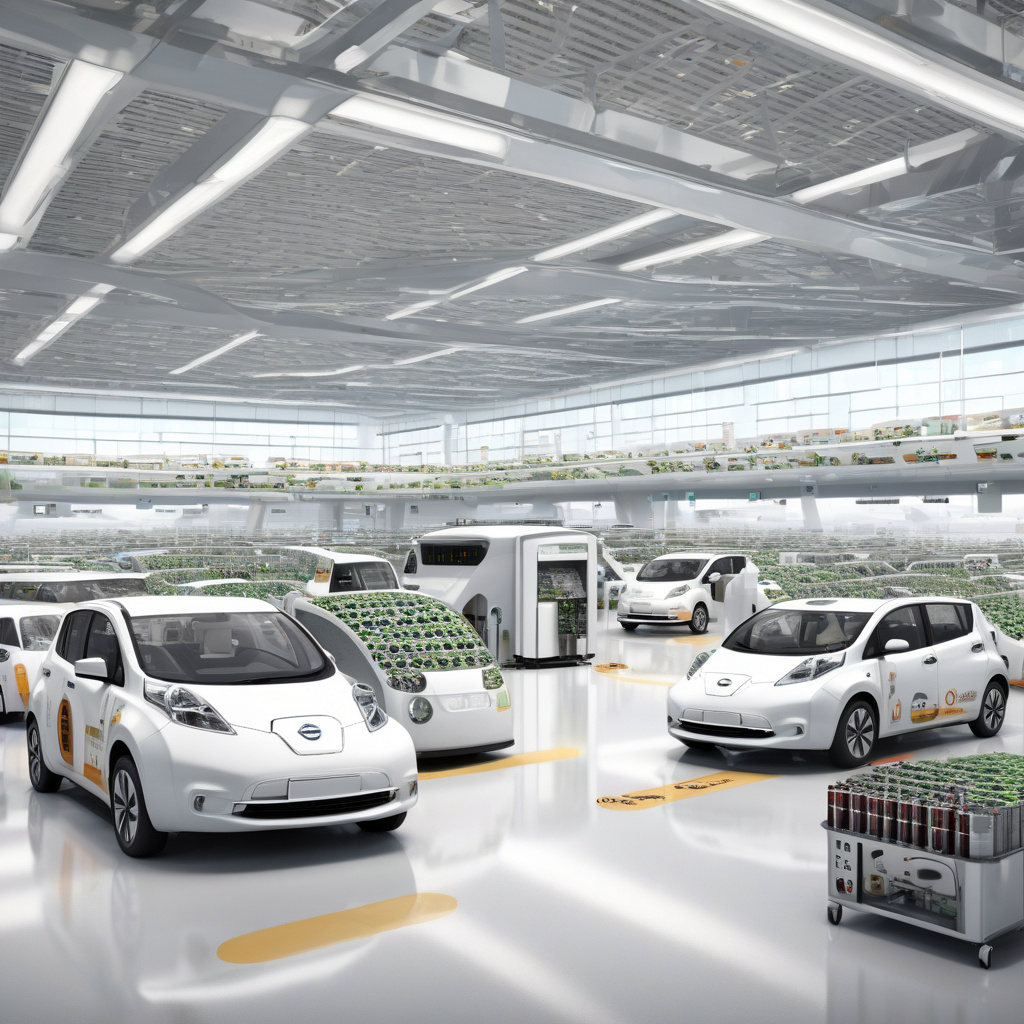Recycled Nissan EV batteries get second life powering Italy’s largest airport
Italy’s largest and busiest airport has integrated a total of 162 recycled Nissan Leaf batteries into its power grid, marking a significant step towards sustainable energy solutions. This innovative initiative not only showcases the potential for second-life applications of electric vehicle (EV) batteries but also underscores the importance of embracing eco-friendly practices in large-scale operations.
The project, implemented at Rome’s Fiumicino Airport, leverages the capabilities of these repurposed EV batteries to store energy generated by the airport’s photovoltaic system. By capturing and storing excess energy during the day, the batteries enable the airport to reduce its reliance on the traditional grid during peak hours, ultimately leading to cost savings and a decreased carbon footprint.
The collaboration between Nissan, Eaton, and ENEL X, which facilitated the installation of the system, highlights the power of partnerships in driving sustainable innovation. By combining Nissan’s expertise in battery technology, Eaton’s proficiency in power management, and ENEL X’s experience in energy services, the project successfully demonstrates the potential for circular economy practices in the energy sector.
One of the key advantages of repurposing EV batteries for stationary energy storage lies in extending their lifespan beyond automotive applications. While EV batteries may no longer meet the performance requirements for powering vehicles, they still retain a significant portion of their capacity and can effectively store renewable energy for various purposes. This approach not only maximizes the value of the batteries but also contributes to reducing electronic waste and promoting a more circular economy.
Moreover, the integration of recycled Nissan EV batteries at Fiumicino Airport serves as a compelling example of how innovative solutions can address the dual challenges of energy storage and sustainability. By repurposing batteries that have already been used in vehicles, the project demonstrates a practical and cost-effective way to harness clean energy and reduce environmental impact.
The success of this initiative paves the way for similar projects to be implemented in other airports, commercial buildings, and industrial facilities around the world. As the demand for renewable energy sources continues to grow, finding creative and efficient ways to store and utilize this energy becomes increasingly crucial.
In conclusion, the integration of recycled Nissan EV batteries at Italy’s largest airport represents a significant milestone in the journey towards a more sustainable future. By harnessing the potential of second-life applications for EV batteries, the project not only showcases the versatility of these technologies but also underscores the importance of collaboration and innovation in driving positive change. As we look towards a greener and more sustainable world, initiatives like this provide inspiration and motivation for embracing eco-friendly solutions in all aspects of our lives.
Italy, Nissan, EV, Sustainability, CircularEconomy.











